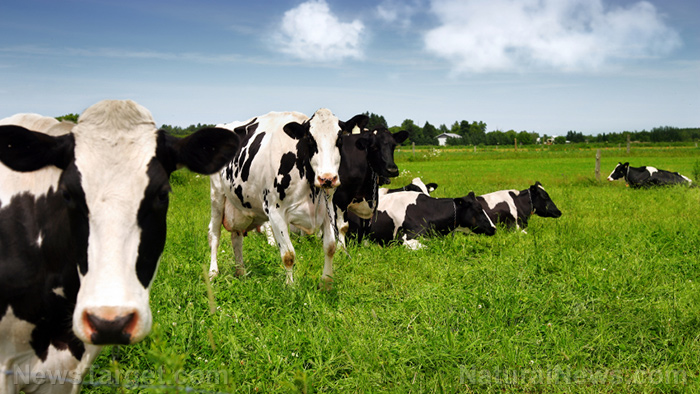
An expert recommends incorporating livestock on farmland to improve soil quality. Many successful regenerative farming programs are integrating livestock back onto the land to boost soil health.
Cattle offers many agronomic benefits
Mike Winkler, a soil conservationist with McCook, Nebraska Natural Resources Conservation Service (NRCS), explained that cattle provide various agronomic benefits.
Agronomy is a science and practice that studies agriculture from "an integrated, holistic perspective."
Through agronomy, researchers study the properties of the soil and how the soil interacts with the growing crop. They also try to learn what nutrients or fertilizers crops need and when and how to apply these nutrients.
Winkler added that "hoof action" alone from livestock like cows can help to break up some of the top layer compaction in the soil. This is important because a top layer of compaction could be hindering related factors like water infiltration and aggregate stability.
When introducing livestock during fall to farmland, they can graze cover crops or corn stalks. At the same time, cows can provide natural fertilizer and help break up crop residue and speed up microbial action in the soil.
Winkler also said that if there is a "buildup of litter even in no-till situations or cover crop situations," livestock will help break that down and get their litter incorporated into the soil. (Related: A more diverse farm land provides better conditions for pest control.)
According to Winkler, cattle can also break up the litter in established grass stands or Conservation Reserve Programs (CRP), which can then help native grasses and wildlife habitats thrive.
Winkler noted that wildlife tends to leave when the grass becomes too thick. This is when you should use cows to trample that litter down into the soil, eat some of those plants off and beat the grass back down.
Additionally, using cows can help some forbs (flowering, non-grassy herbaceous plants), legumes and wildflowers that are setting out in the soil rejuvenate.
Lastly, Winkler explained that farmers restoring pasture once converted to cropland can help speed up the process with rotational grazing to reintroduce the native grass species and help regenerate the land.
Tips for improving soil quality in your home garden
Aside from livestock, here are some tips to improve garden soil quality on your homestead:
Let your soil dry up
It's natural to want to keep garden soil wet if you have a lot of plants.
But did you know that occasionally letting the soil dry up makes more room for organisms to grow and for roots to thrive? Dry soil also welcomes air better.
Try this simple test: Pick up some soil and squeeze – if it’s still wet or moist, hold off on watering again for a couple of days.
Soil that molds into a firm ball can go without water for at least one week or so.
Clearly define pathways and beds
If you have a home garden, keep in mind that you should avoid walking on the soil since foot traffic compresses soil. If you step on the soil too much, this can kill its tilth or the physical condition of the soil.
To avoid this, clearly define pathways and make garden beds permanent. This helps create boundaries between your walking and growing areas and prevents the soil from getting too worn down with foot traffic.
Use natural dividers like woodchips, white clover or micro clover to invite favorable insects that will fertilize your soil.
Put your soil on an "organic diet"
Like humans, soil that gets the right nutrition will be healthier. Putting your soil on an organic diet is the best way to keep it healthy.
To do this, add a good mix of nitrogen-rich additives like well-matured manure and organic fertilizers. You can also use other ingredients like kitchen scraps and dried leaves to improve garden soil health.
It's also important to add these ingredients at the right time, such as during autumn. This helps prepare the soil so it can be as productive as it can be all year round.
When adding organic materials, chop the material directly above the topsoil for about two inches and then cover it with mulch.
Recycle perennial plants
If your garden has fruit trees and woodlands, you have plenty of organic material to improve soil quality with. After you prune and trim for the winter, save up the perennial cuttings for your soil. Recycled perennials are a great soil additive.
If your land is large enough, incorporate livestock or collaborate with livestock owners to improve soil health.
Visit HomeGardeningNews.com for more tips on how to improve soil health.
Watch the video below for some useful indoor gardening tips.
This video is from the HeatherStarr channel on Brighteon.com.
More related stories:
Home gardening basics: How to keep composting during the winter.
Do your homework: Tips for making sure you get a good deal when buying your homestead property.
Some points to consider when buying land for homesteading purposes.
Sources include:
Please contact us for more information.























